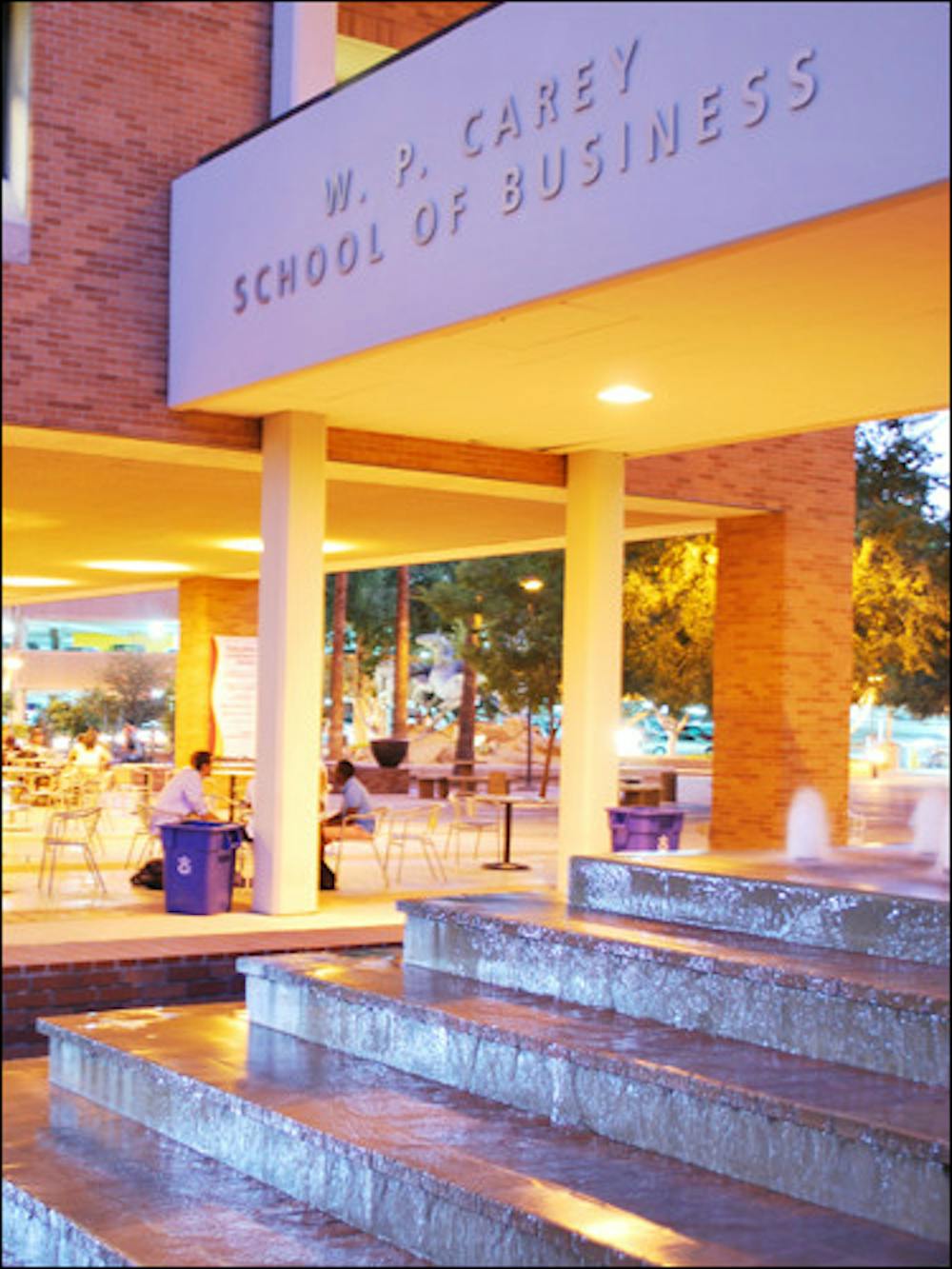ASU should operate more like a private university by depending more on tuition than the Legislature for money, said Dean Robert Mittelstaedt of the W. P. Carey School of Business on Thursday.
Mittelstaedt, the keynote speaker at the October Arizona Business Forum, hosted by the Harvard Business School Club of Arizona, said ASU should operate like universities in other states that depend on state legislatures for less than 5 percent of their budgets.
“I don’t mean you turn it into an Ivy League college … what you want to do is change the structure so that we get a much … larger percentage from tuition, which means you have to raise tuition,” he said. “You shouldn’t have a state university as big as [ASU] or all three state universities dependent on whether the Legislature has money or not.”
ASU currently depends on the Legislature for about 30 percent of its budget and is limited by the Arizona Board of Regents when it comes to setting its tuition, Mittelstaedt said.
“You put those two [agencies] together and you can’t meet the mandate of a state university to educate as many people as are reasonably likely to succeed in college,” he said. “You can’t operate an institution like this with 70,000 students wondering every year whether 30 percent of your budget’s going to be there or not.”
Mittelstaedt said he had to lay off 50 people last year because of budget reductions and his faculty and staff had to take 10 to 14 furlough days.
“So we get more customers, more to do with less people and less resources because we’re waiting on the Legislature,” he said. “It’s nuts.”
Mittelstaedt said people already complain about ASU’s tuition, even though it’s less than the in-state tuition of other comparable universities, citing specifically Pennsylvania State University, a public university of about 44,000 students at its main campus with an in-state tuition of about $14,400, according to Collegeboard.com.
There’s no reason for taxpayers to subsidize people that can afford to pay about $15,000 for in-state tuition, Mittelstaedt said.
“I invested in my children’s college education because I know there’s going to be a payback for it,” he said. “Give financial aid to people who don’t have the money, but quit lowering the price for everybody as a public good.”
Mittelstaedt said ASU gives so much financial aid and the tuition is so low that some students get paid to attend the University.
“Some cases, students make money on their scholarship. Now they use that toward their living expenses and other things, so nobody pays even $6,000,” he said.
The three state universities together get about $850 million from the state, Mittelstaedt said.
“That’s almost a third of the deficit,” he said. “There’s a whole lot of other places I think they should cut right now also, but I’d be happy to see the University come off the state budget.”
Mittelstaedt said he doesn’t think making a transition toward a more privatized university would cost ASU that many students.
“You’ll lose some, but we already have this commitment that anybody who comes from a really low income family … will come to ASU at zero cost, including their living expenses,” he said. “We can continue to fund that, but above that, people ought to be paying something.”
Brendan O’Kelly, president of ASU’s Undergraduate Student Government, said that while he understands Mittelstaedt’s position, his points define a private university.
“How does he expect students to pay for this?” he said. “That’s absurd if that’s what he’s arguing for.”
O’Kelly said he doesn’t see how students could be making money from their scholarships when the average amount of debt Arizona students graduate with is $17,000, according to an ABOR student financial aid report for fiscal year 2008.
“There’s no data to suggest that people don’t pay any money,” he said. “I’m seeing the exact opposite.”
Implementing Mittelstaedt’s idea would raise the amount ASU depends on tuition for budget from 55 percent to 95 percent, O’Kelly said.
“We’re going to see the average graduating debt for undergraduates double,” he said. “That’s not a public institution. Should we change the name of ASU?”
At the forum, Mittelstaedt also spoke about current topics in the business world that ranged from real estate in Arizona to the federal bailout of private banks.
Arnold Schwartz, a member of the board of directors of the Harvard Business School Club of Arizona, said Middlestaedt spoke to the club five years ago about what to do after mistakes are made in the business world.
“I thought it was time for an update in terms of the turmoil in the economy with many large companies making fatal mistakes over the last year,” he said. “I thought it’d be timely to have him back.”
Schwartz said he thought Mittelstaedt gave his honest assessment of many important happenings in U.S. business.
“It was refreshing that he’s a little different from other economists, and he basically said what I thought he would say, which is that nothing’s changed [with] organizations and governments,” he said.




